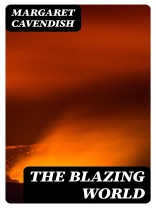Margaret Cavendish’s ‘The Blazing World’ is a pioneering work of science fiction and feminist literature that intricately fuses allegory with fantastical elements. Written in 1666, it presents a vivid narrative of a woman who, after being transported to a utopian realm, gains power and authority over a male-dominated society. The text’s experimental style, characterized by its rich descriptions and conversational tone, defies the conventions of 17th-century literature, showcasing Cavendish’s innovative approach to storytelling and her deep engagement with contemporary scientific discourse and philosophical debates on gender and identity. Cavendish, Duchess of Newcastle, was a notable figure in an era when women’s contributions to literature were often overlooked. Her unique experiences as a noblewoman and her extensive educational pursuits, including discussions with influential thinkers of her time, influenced her writing. Her work captures both her longing for autonomy and her critique of the patriarchy, making her a significant precursor to modern feminist thought. ‘The Blazing World’ is not merely a fantastical tale; it is a profound exploration of power dynamics and gender roles. Readers seeking an early exploration of feminist themes within a richly imagined narrative will find Cavendish’s work both enlightening and provocative, making it a vital addition to the canon of speculative literature.
Об авторе
Dame Margaret Cavendish, the Duchess of Newcastle-upon-Tyne (1623–1673), was a pioneering English aristocrat, philosopher, poet, scientist, fiction-writer, and playwright during the 17th century. Her work is marked by an imaginative and unorthodox blend of fantasy and science, which has secured her a distinct place in the annals of English literature. One of her most notable contributions is ‘The Blazing World’ (1666), a book widely considered to be one of the earliest examples of science fiction. The work offers a utopian vision and a satirical exploration of the nature of knowledge, gender, power and identity, blending imaginative fiction with philosophical discourse. Uniquely for her time, Cavendish published under her own name, an act that was both unusual and controversial for a woman in the seventeenth century. Her literary style was extravagant and rhetorical, characterized by a bold and unapologetic assertion of her intellect and creativity. Cavendish navigated a predominantly male intellectual environment, engaging with contemporary scientific and philosophical debates while also challenging gender norms. She authored several works in which she discussed natural philosophy and advocated for the acceptance of women in scholarly pursuits. Her outspoken, distinctive corpus of work has earned her recognition as an important figure in the history of literature and feminism.












